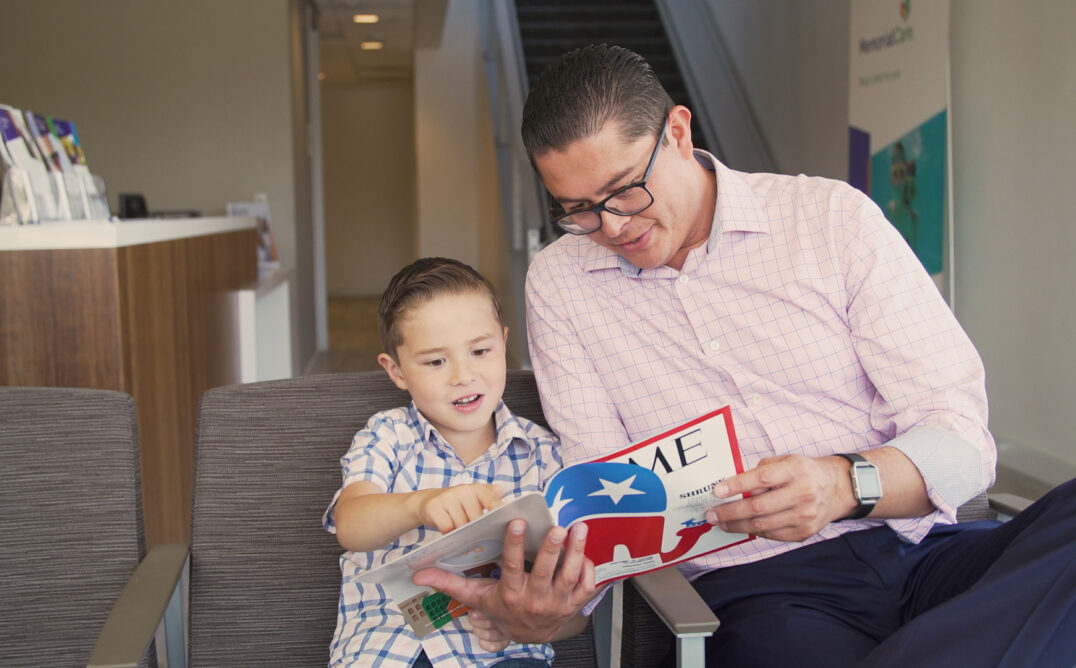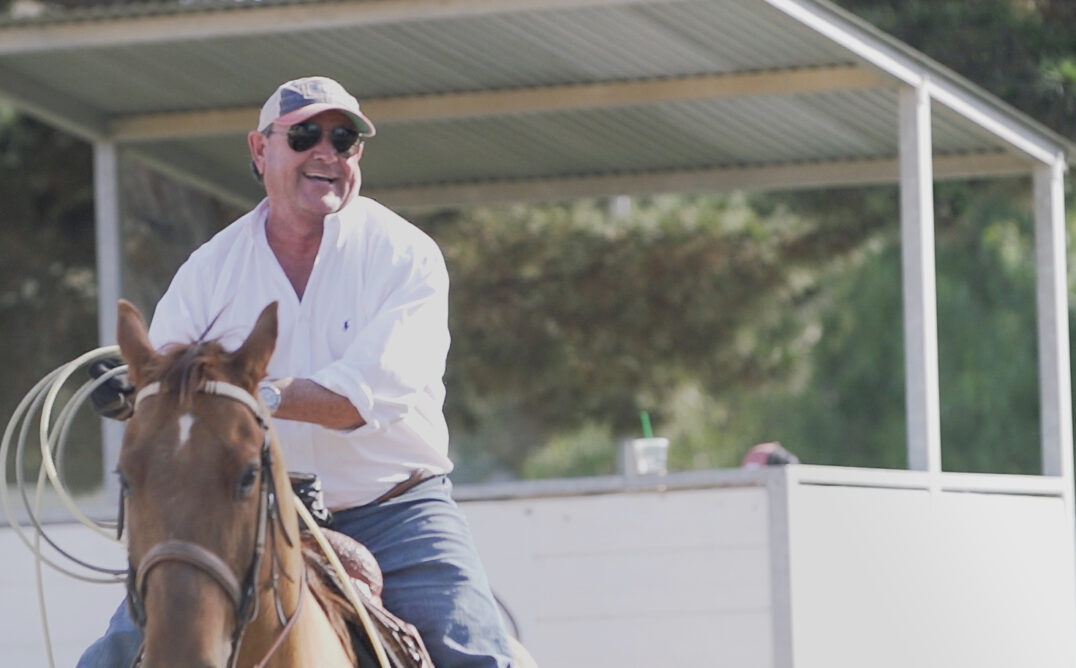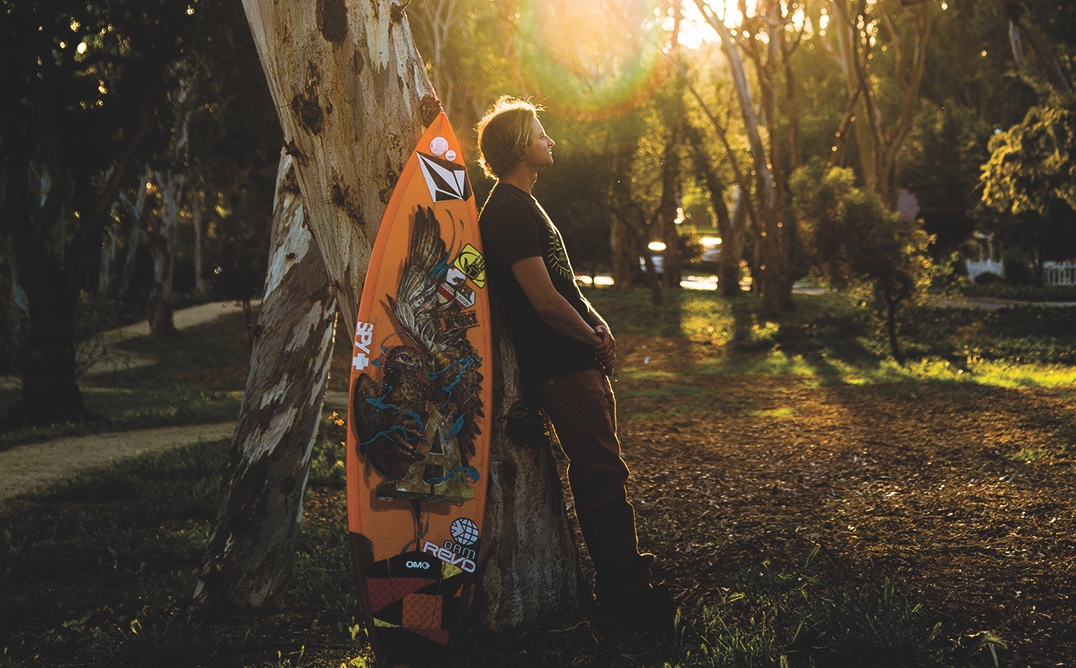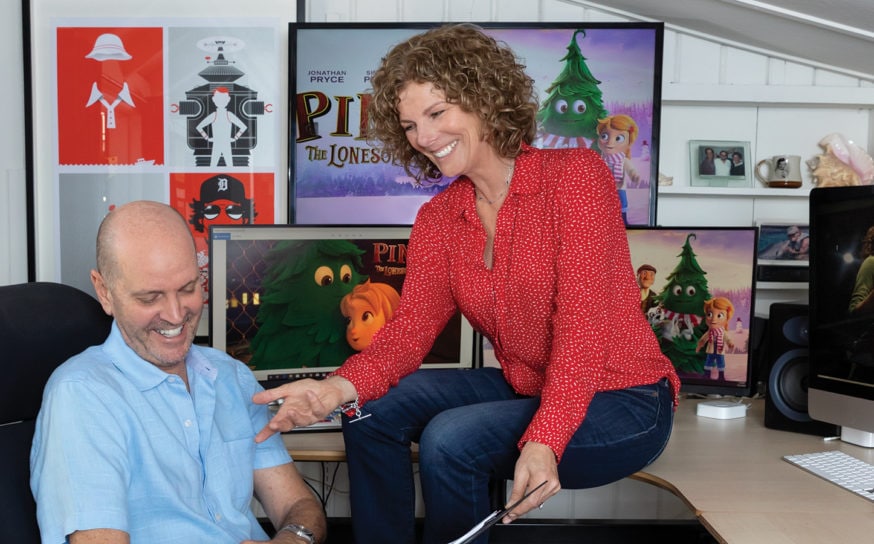
A local nonprofit organization plants the seed for an eco-conscious community in students worldwide
Going for green.
- CategoryPeople
- Written byEliza Krpoyan
- Illustrated byChristine Georgiades
Picture a group of students—determined to ban single-use plastic straws, utensils and stirrers in Manhattan Beach—speaking before City Council. Imagine them working together to develop research on why this matters, why the city should consider making this change and the net positive impact it would have on the community. Now recall the City Council voting unanimously to move forward with a ban on the issue.
Grades of Green Youth Corps eco-leaders—Penn, Carter, Ethan, Lila and Sienna—played a big role in the plastic pollution reduction ordinance that went into enforcement this year. “There were students who attended multiple City Council meetings,” shares co-executive director Allie Bussjaeger. Many young environmentalists also visited local businesses to speak with them about going straw-less.
This is among the kind of activities Grades of Green, a global nonprofit organization with a mission to inspire and empower students to care for the environment, heads up. And it all started here in the South Bay.
Four Manhattan Beach moms started the organization, celebrating its 10-year-anniversary this month. Since 2008 Grades of Green has grown to encompass 47 states and 23 countries. More than one-half million students starting as young as pre-K are part of the movement.
“It started off with the idea of engaging students in simple habits like turning off the water when brushing your teeth or using both sides of paper before recycling it. It evolved from students not only wanting to practice those habits but also lead environmental projects and activities in their communities.”
“The original students who were part of the program 10 years ago are now some of our college mentors,” shares co-executive director Emily Gee, who started as an intern along with Allie eight years ago.
“[Grades of Green] was an idea from a group of passionate parents who really wanted to work with their young children and the peers of their children to help them learn some environmental habits they could carry with them for a long time,” says Allie. “It started off with the idea of engaging students in simple habits like turning off the water when brushing your teeth or using both sides of paper before recycling it. It evolved from students not only wanting to practice those habits but also lead environmental projects and activities in their communities.”
There are more than 50 activities that schools can participate in. Categories include air, earth, energy, toxins, waste and water. Students can learn how to compost or how to make nontoxic cleaning products by mixing water and vinegar.
In addition to impacting a change at the local government level, another milestone includes the conservation of 20 million gallons of water in the past two years globally. In Nairobi, Kenya, an initiative to improve water quality by reducing litter led to 25 Malezi Community Centre student leaders converting 100 cement bags into trash bins. The students also educated community members about the relation between litter and water-borne illness.
During the past four months students around the world have been working on a campaign to divert waste by encouraging peers to bring reusable items instead of single-use plastics, and implementing composting and recycling programs. The goal is to divert 480 tons of waste.
Allie borrows from Dr. Seuss: “Unless someone like you cares a whole awful lot, nothing is going to get better. It’s not.”
It’s a reminder that every student and adult who cares adds up, Allie explains. “Even if only one student is reducing one pound of trash, when you mobilize that energy with the thousands of students around the world who are working on projects together, the results are 400 tons of trash.
The program—valued at $1,500 per student group that registers—is completely free because of donations and sponsorships. “We never want cost to be a barrier for participation. We want any student around the world to feel empowered to change the world,” says Allie.
Support Grades of Green by attending their annual fundraising event, VERTE, on April 20. It’ll be hosted at the westdrift hotel and will feature a global tasting menu highlighting five regions where Grades of Green students are located, including Indonesia and Italy.


























